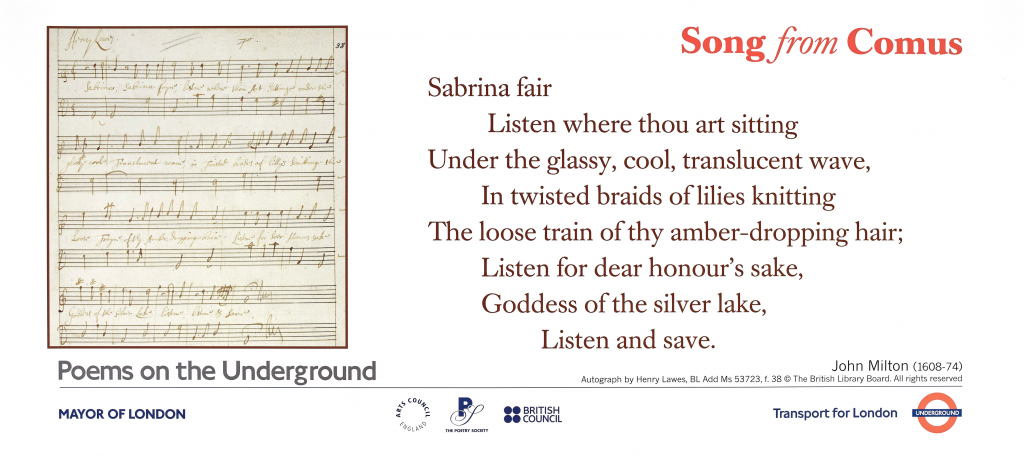As we approach the winter solstice we feature poems of peace and poems celebrating the beauty and fragility of the Natural World, as well as paying tribute to poets from earlier times, who still speak to us centuries later.
If you didn’t manage to see our most recent set of Poems on London Underground trains you can find our new poems by Seamus Heaney, Garous Abdolmalekian tr. Idra Novey & Ahmad Nadalizadeh, Anthony Joseph, Helen Ivory, Charles Simic and Karl Shapiro here
Moment in a Peace March by Grace Nichols
Rainforest by Judith Wright
Leaf by Seán Hewitt
Inversnaid by Gerard Manley Hopkins
Everything Changes by Cicely Herbert
I go inside the tree by Jo Shapcott
Birch Canoe by Carter Revard
from In Memoriam by Alfred Lord Tennyson
from Ecclesiates
The Undertaking by Louise Gluck
Peace ( after Goethe) by David Constantine
Peaceful Waters: Variation by Federico Garcia Lorca tr. Adrian Mitchell
For My Wife, Reading in Bed by John Glenday
Anon: Westron Wynde
Anon tr. Flann O Brien: Season song
Anon: The Twa Corbies
Anon tr. Seamus Heaney: from Beowulf
Anon : The Silver Swan
Anon: I saw a Peacock with a fiery tail
Song from Comus by John Milton
The Expulsion from Eden by John Milton
On His Blindness by John Milton
Holy Sonnet by John Donne
No Man is an Island by John Donne
The Good Morrow by John Donne
The Weather’s Cast its Coat of Grey by Charles D’Orleans translated by Oliver Bernard
Disillusionment of Ten O’ Clock by Wallace Stevens
from Piers Plowman by William Langland
Swineherd by Eiléan Ní Chuilleanáin
Prelude 1 by T.S. Eliot
Optimistic Little Poem by Hans Magnus Enzensberger translated by David Constantine
You can see the rest of our poems from 2023 here
You can see our poems from 2022 here
You can find all our poems from 2021 here
You can find all of the poems displayed on our website in 2020 here






























